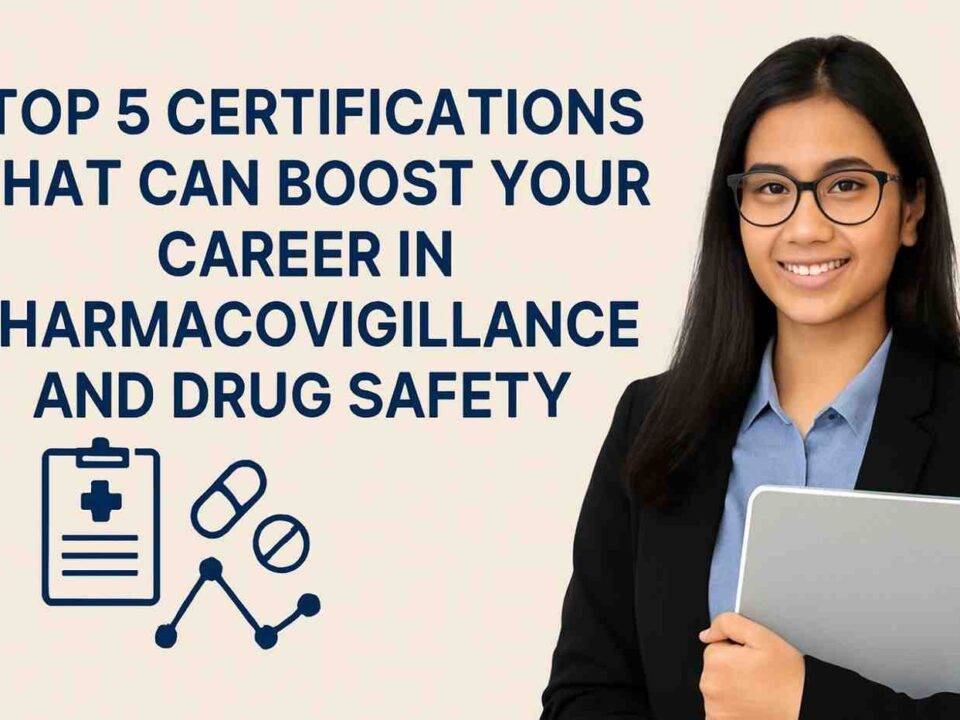
Artificial intelligence generates a more accurate reporting system for increased drug safety by processing large amounts of diverse data in an organized way.
The drug safety data monitoring and reporting process can be made easier with artificial intelligence.
As safety technology advances, AI is increasingly used in case processing for intake, validation, and coding. This is to support case processors or automatically process cases.
Data entry can be automated, results can be produced quickly, errors can be reduced, and clinical documentation can be understood and classified using AI.In order to comply with regulations, pharmaceutical sponsors are responsible for collecting and reporting safety data.
By using natural language processing (NLP) to automate case intake, AI can help extract and aggregate large data sets. Businesses need faster case capture to report problems and implement preventative changes.
In addition to reducing the data entry costs associated with case intake, these AI technologies also do so significantly.
- AI tools can instantly analyze both structured and unstructured data.
- NLP tools analyze intricate descriptions, including medical charts, social networking posts, documents, and other unstructured data.
- Pharmacovigilance query tools automate case documentation submission and handling.
- AI-driven automation speeds up the process by supplementing or replacing manual tasks, thus completing reviews more thoroughly than human reviewers under time constraints.
Artificial Intelligence in drug discovery
AI’s ability to run numerous analytical techniques in real-time and evaluate data from various perspectives demonstrates AI’s significance in drug development.
AI has many uses in the clinical, administrative, and research spheres for safety assessments in pharmaceutical development. There are difficulties when using AI.
AI-enabled products may produce inaccurate, even harmful, treatment recommendations.
Machine learning software can analyze data generated from clinical trials faster and more accurately, producing results that, again, are checked. These errors can be caused by unexpected sources of bias in the information used to build or train the AI.
In addition, they can be caused by the inappropriate weight given to certain data points.
Artificial intelligence-supported data analysis allows pharmaceutical companies to reroute funds to create and distribute better drugs.
Image recognition and natural language processing can be used to enhance drug study data quality.
With recent advancements in big data analytics and cloud-based pharmacovigilance platforms, it will be possible to analyze large datasets from real-world experiments more sophisticatedly.
As well as reducing human error, AI can help identify trends and patterns, as well as speed up risk assessment processes.
Post-marketing AI
Based on safety data gathered after approval to safeguard patients, AI can help pharmaceutical companies research, learn, and forecast the changes to already-available products.
The results may indicate previously unidentified effects of long-term medication use and may motivate adjustments to dosage or patient education.
AI and machine learning help drug sponsors gather information and create practical solutions to adverse events in post-marketing safety data.
NLP techniques also use AI and computational linguistics methodologies. To categorize events as meaningful or not, qualitative models use expert judgment. Because they aid in determining the underlying cause of events and whether they result in significant events, such as side effects, causal models may be a better fit for post-approval changes.
A machine- or AI-run causal analysis that examines all post-approval events may spot issues.
AI offers higher-quality data to regulatory bodies. This enables easy transmission of clean data to internal teams in an easy format. This allows them to concentrate on analysis rather than data collection and extraction.
AI can accelerate reporting by using AI to identify potential signals earlier, giving analysis teams more time to make the right decision.
New AI developments
Optical character recognition (OCR) transforms handwritten and typed text into machine-readable text. Other AI applications employed in pharmacovigilance include RPA, autonomous software, desktop automation, NLP, speech-to-text conversion, and natural language understanding (NLU).
They are used to collect data on adverse drug reactions (ADRs), boost efficiency, speed, and scalability, and cut costs. FastText, the long-short-term memory recurrent neural network (LSTM), and the convolutional neural network (CNN) are a few of the neural networks and deep learning models used to produce real-world data from ADRs.
There is potential to standardize and streamline the entry of ICSR [individual case safety report] data into a pharmacovigilance system by utilizing various combinations and integrations of these currently available technologies.
The automation of pharmacovigilance tasks using technologies like blockchain, rule-based robotic process automation (RPA), cognitive machine learning, and chatbots.
Both authorities and the life sciences industry are on an education path to determine appropriate use cases, GxP validation, and quality assurance. This is in a highly regulated environment. Pharmacovigilance teams can filter the information using most AI technologies currently on the market to spot trends and send signals.
Although AI in drug safety operations is still developing, conducting risk-benefit analyses, and using AI to analyze substantial data can help sponsors identify drug-event associations and predict positive or negative effects.
The intelligence offered by these signals is invaluable in the real world and cannot be obtained by data mining from controlled clinical trials. NLG technologies can produce aggregate reports or their basic framework, freeing up human experts to conduct additional analysis and finalization.
Pharmacovigilance uses NLP applications to comprehend and categorize information about post-marketing adverse events from various sources, including patients, healthcare professionals, and clinical trials.
Unstructured clinical notes on patients can be analyzed by NLP systems. This provides amazing insight into how to assess quality, improve procedures, and enhance patient outcomes.
Natural language and image classification modeling have undergone some amazing improvements. These advancements may help pharmaceutical development and safety. Additionally, causal, and qualitative models provide a lot of value, and they continue to improve.
With Sollers, you are guaranteed to learn the necessary skills, competencies, and other qualities needed for a career.



